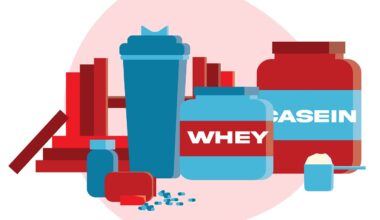Fiber and Gut Health: Keys to Golfers’ Energy Levels
For golfers looking to enhance their performance, understanding the role of nutrition becomes paramount. Particularly, fiber is essential for maintaining gut health, which directly affects energy levels and overall performance. Fiber-rich foods such as whole grains, fruits, and vegetables play an important role in digestion and nutrient absorption. While fiber benefits everyone, it is especially crucial for athletes who engage in prolonged physical activities. Proper fiber intake can prevent energy dips during long rounds on the golf course by ensuring that energy is released steadily. This steady release of energy is vital for maintaining focus and concentration through each hole. Moreover, many golfers may overlook their gut health, but it can have a significant impact on how well they perform. An optimal digestive system allows for better nutrient absorption, which translates into more energy for the body during those long hours on the course. Thus, by focusing on fiber intake, golfers can bolster their overall performance to play their best games each time they hit the greens. Knowing how to properly fuel the body is essential for achieving greatness in golf.
The Importance of Gut Health
The digestive system is often considered the “second brain” due to its impact on energy levels and performance. A healthy gut can affect everything from stamina to mental clarity. Golfers require both physical and mental stamina to excel on the course, making gut health a critical area of focus. When the gut is functioning optimally, it absorbs nutrients efficiently, providing golfers with a sustained energy source. Nutrient deficiencies can lead to fatigue and reduced performance, making it essential to prioritize a fiber-rich diet. Foods high in fiber also help regulate blood sugar levels. Unregulated blood sugar can lead to sudden energy crashes, which can interrupt a golfer’s game flow. Additionally, fiber plays an essential role in maintaining a healthy microbiome, which contributes to better gut health. A happy gut can result in fewer health issues, such as inflammation, which can hinder athletic performance. By including plenty of fiber in their diet, golfers can experience enhanced endurance and better recovery, ensuring they’re ready for the next challenge on the course.
Golfers often struggle to find the right balance in their diets. One common misconception is that elite performance relies solely on protein and carbs, while fiber is frequently ignored. However, fiber is crucial for a well-rounded nutrition plan that supports gut health. To keep energy levels high, golfers should introduce various fiber sources such as legumes, fruits, and whole grains into their meals. This diversification ensures they receive different types of fiber, each offering unique benefits. Soluble fiber, found in oats and apples, helps improve satiety and stabilize blood sugar levels. Meanwhile, insoluble fiber, abundant in whole wheat products and vegetables, promotes regular bowel movements. Both types play distinct yet complementary roles in digestive health. Including these diverse sources of fiber can help prevent digestive discomfort during long rounds. Furthermore, well-composed meals that include fiber can help sustain energy while avoiding heavy, sluggish feelings. Ultimately, golfers should strive for a diet incorporating various foods to maximize their overall performance and minimize the risk of digestive distress during competitive play.
Hydration Basics for Golf Fitness
While fiber is crucial for gut health and energy stability, hydration is another important factor that cannot be overlooked. Golfers often spend hours on the course under the sun, increasing the likelihood of dehydration. Dehydration can significantly affect performance by diminishing stamina, focus, and coordination. Thus, it’s vital for golfers to drink plenty of fluids before, during, and after their rounds. Water remains the best option for hydration, but other fluids, including those found in fiber-rich foods like fruits, can contribute significantly. For example, watermelon and oranges have high water content and also provide the necessary nutrients to support athletic performance. Sports drinks can also be beneficial for replenishing lost electrolytes during prolonged sessions, especially on hot days. It’s essential to create a hydration strategy that aligns with specific golfing experiences. Not only should golfers pay attention to their water intake, but they must also consider how their choice of foods impacts hydration levels. Staying well-hydrated ensures that energy levels remain high, allowing golfers to perform their best under various conditions.
Certain supplements can complement fiber and nutrition to enhance golfers’ performance further. For those who may struggle to meet their daily fiber needs through diet alone, fiber supplements can be a viable option. Ingredients like psyllium husk and inulin can help increase overall fiber intake effectively. However, supplementing should never be a substitute for whole, fiber-rich foods that provide additional vitamins, minerals, and phytonutrients important for health. Prebiotic and probiotic supplements can also be beneficial for maintaining a healthy gut microbiome. Probiotics are known to help restore beneficial bacteria in the gut, especially after antibiotic use or dietary changes. A healthy microbiome contributes to improved digestion, nutrient absorption, and immune support. Lastly, Omega-3 fatty acids provide anti-inflammatory benefits that help mitigate soreness post-golf rounds. Including these natural supplements in the overall nutritional plan can significantly enhance golfers’ gut health and overall energy levels. Before considering supplementation, consulting with a healthcare professional is critical to create a personalized approach suited specifically for golfing nutrition.
Conclusion: Fueling the Game
Incorporating adequate fiber and maintaining gut health is vital for golfers aspiring to excel in their sport. A digestively healthy golfer experiences improved energy levels, sustainable performance, and better mental focus throughout their games. Proper dietary choices can make significant differences on the course, from fueling up before a round to recovering afterward. Golfers should focus on whole food sources of fiber while ensuring they remain well-hydrated, as this combination supports maximum performance potential. Moreover, understanding how different nutrients play roles in the body can provide golfers with the knowledge to optimize their diets. A balanced diet can help prevent fatigue, enhance recovery, and allow golfers to approach each round with the best possible energy levels. Supplements may also provide necessary support, provided they are used wisely and as a complement to a whole foods diet. Emphasizing these essential aspects of nutrition will prepare golfers not just for their next game but for a lifetime of enjoyable golfing experiences. By properly fueling their bodies, golfers can enhance their performance while also enjoying the numerous physical and mental benefits of the game.
Ultimately, fostering good gut health through adequate fiber intake and proper hydration enables golfers to thrive in their sport. Implementing these nutritional strategies can contribute significantly to lower fatigue and greater endurance on the golf course. Golfers who prioritize their gut health will likely see improvements in their overall game, as they can better focus on their swings and putts without distraction. Maintaining robust living habits not only elevates performance but also enhances the enjoyment of the game itself. A well-rounded approach toward nutrition, hydration, and supplementation is key to achieving long-lasting benefits in golf performance. If golfers can integrate these principles into their daily lives, they will become more resilient athletes, able to withstand the challenges presented by the sport. Coaches and trainers should inform these strategies as part of their training regimes. Future generations of golfers can build on these foundations ensuring that they remain at the forefront of sports health. The journey toward golfing excellence begins with a commitment to fueling the body right, thus unlocking athletes’ full potential for outstanding performance on the greens.
In conclusion, fiber and gut health play a pivotal role in supporting golfers’ energy levels. A diet higher in fiber not only aids digestive processes but also enhances nutrient absorption, fostering better performance during rounds. Hydration and proper supplementation can complement these efforts, ensuring athletes remain at the top of their game throughout long days on the course. As golfers become more educated about nutrition, they’ll better understand how their bodies respond to various foods and hydration strategies. No golfer can afford to neglect their gut health; doing so could hinder their physical and mental performance while playing. The focus should always be on incorporating a balance of nutrients into their meals, maintaining both short-term performance and long-term health goals. Golfers should strive to make informed dietary choices that enhance their well-being and aid them in their quest for lower scores on the course. This ongoing commitment to wellness will not only lead to improved golfing but also a healthier lifestyle overall, ultimately benefiting all aspects of their game.


